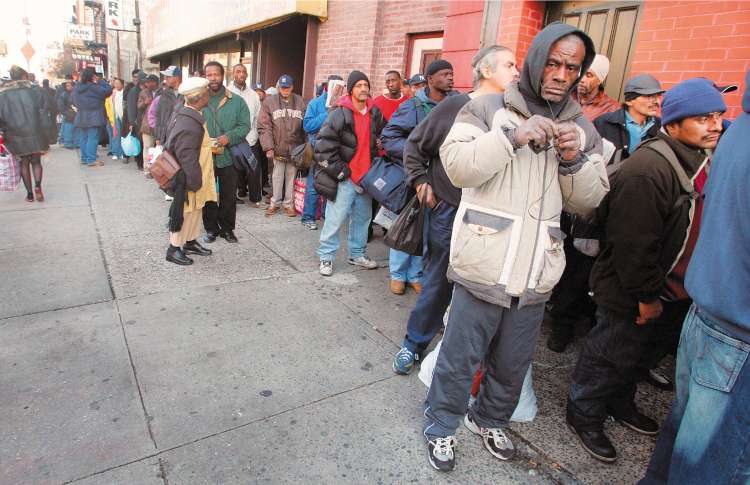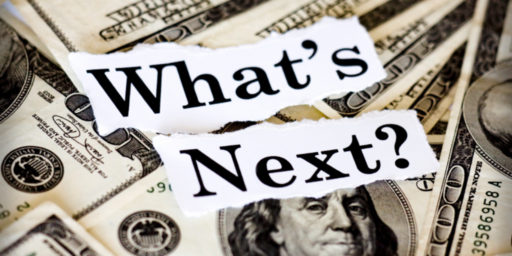Economic Hysteria
Alan Reynolds over at the Cato Institute puts the current financial crisis into perspective, and notes that the current financial crisis isn’t nearly as a bad as many people seem to thing.
Media hysteria over the mortgage crisis is almost certainly misleading countless people about prospects for the real economy.
The US economy is likely in recession. Yet even that conclusion may be premature — it rests on a short sample of slim evidence. Industrial production has fallen for only one month. First-time claims for unemployment insurance touched recession levels for just one week.
Of course, housing starts are down 1.1 million since early 2006, but nearly that entire problem is behind us — starts couldn’t drop much in the future, because homebuilding would then be well below zero.
The focus of the gloomy economic news is on a “credit crisis” or “financial crisis.” Yet postwar US financial crises have never resulted in economic disaster. Think of the savings & loan (S&L) crisis of 1986-1995 — a period that also saw Black Monday (Oct. 19, 1987), when Dow stocks fell 22.6 percent.
This is quite right, and in the case of Black Monday quick action by the Federal Reserve averted a worse outcome. Could the current situation be worse? Sure, but I don’t think it is likely.
The S&L crisis lasted from 1986 to 1995, and was undoubtedly the worst US financial crisis since World War II. Yet the real economy grew by 2.9 percent a year over that period.
Some nice context there. So the current crisis shouldn’t be blown out of all proportion. Sure it isn’t good, but it isn’t going to be another depression. Speaking of which…
Yet the Los Angeles Times, for one, has gone so far as to ask (March 20) “Could another Great Depression be lurking over the horizon?” This is nonsense on stilts.
“Then, like now,” the article noted, “stock prices were highly volatile.” So what? Stocks are only down about 10 percent in the United States — a much milder drop than most other markets.
Some papers can’t get anything right. An April 6 New York Times piece (“Almost as if The Sky Were Falling,” on stock prices) claimed that the “focal point for the stock market’s difficulties” is that “banks have been reluctant to lend money to one another, or to anyone else.”
The talk of a depression is pretty absurd given that we have yet to determine that we are in a recession. Sure a depression is possible, but I don’t think it is very likely as at all. The government seemed to have actually learned a good lesson from 1929 and the years that followed. Or I should say the economists have learned quite a bit and it is economists who head up the Federal Reserve.
The U.S. may currently be in a recession, but there is no need to panic.





When housing starts are down in comparison to where they were during what everyone recognized as a “bubble”, is that really a problem?
Doesn’t “gravity” have something to do with it?
I am not sure why this is a surprise to anyone but it is nice to see it said out loud.
The MSM has been building up the failure of the economy story for some months now. It will peak the day before the 2008 election. The day after the election (provided and democrat wins) it will miraculously turn around because the democrat won and we now have real “hope”. If McCain wins the story will be 4 more years of ‘woe is me’ economics.
It has been as predictable as a clock.
I think that things probably look a lot worse to the columnists and editorial writers at the New York Times than they do to most of us. First, location, location, location. New York is, no doubt, feeling very nervous about the situation since so much hits so close to home.
And then, of course, the NYT always cries recession in an election year.
Yep, newspaper ad revenue is down as much as 50%. [Good riddance commie fooktards (haven’t yet gotten through this front page, below the fold story from yesterday’s atomic paper [and there may be differences between it and the virtual]. But glancing at the first few paragraphs yesterday, there seemed to be a bit of an oily sensation and stinky smell (so what else is new)].
John McCain returned from Vietnam determined to lead
But McCain surprised his doctors by making a dramatic comeback. With a ferocious determination to fly again and a tough physical therapy regimen, he got his wings back and not long after was awarded command of the Navy’s largest aviation squadron, VA-174, at Cecil Field in Florida. Blue-chip connections in the Nixon administration helped.
A review of Navy records and interviews with more than a dozen of his former colleagues paint a picture of a commander who was lionized by his troops as a war hero and respected by aviators … But those Navy records also cast some doubt on the importance of a claim McCain makes in his autobiography …